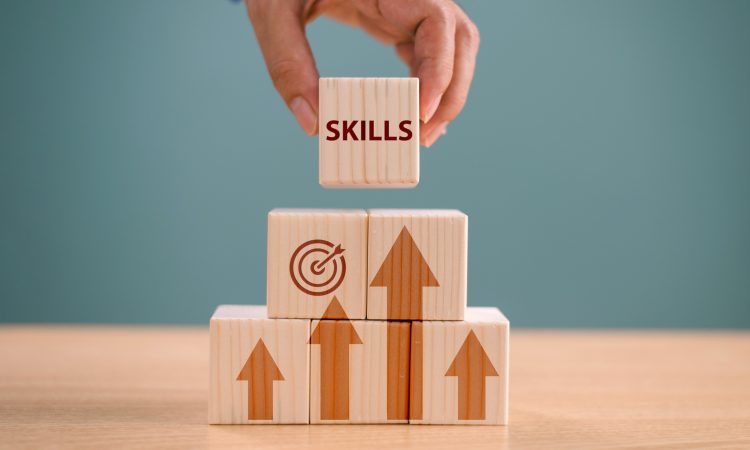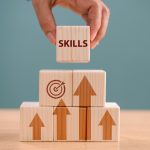|
Getting your Trinity Audio player ready...
|
With the whirlwind pace of the evolving labour market, the rollout of Canada’s Skills for Success framework was both timely and necessary. Building on and modernizing the former Essential Skills model from the early 1990s, this updated framework provides the skills required in today’s world for work, learning and life. Spoiler alert: It’s not just about reading and math any more – social-emotional skills are in the mix now, too.
Transitioning to the new framework
Career development practitioners, essential skills practitioners, educators and employers who relied on the previous framework have gradually moved from the comfy familiarity of Essential Skills and are slowly embracing Skills for Success. Has the transition been entirely smooth? Well, let’s just say it’s been more like riding a bike for the first time – wobbly, with a few falls, but ultimately worth it.
While the updated framework better reflects the skills needed in today’s world, naturally it has brought up some burning questions. Think of these as the FAQs we didn’t know we needed:
- How do we transition to the new framework? What has changed?
- Assessments? Do they exist? (and can I skip the math part?)
- Where are the skill profiles we loved so much?
- Where do I find resources that won’t leave me in a Google rabbit hole?
- How can we support learners to level up their proficiency in these skills?
These questions – and the occasional existential crisis – are par for the course when transitioning to something new.
Skills for Success: What’s new?
Here’s the scoop on some of the changes:
- You may have noticed Document Use is no longer a stand-alone skill: Don’t panic – it hasn’t been sent to the great skill graveyard. It’s now embedded in Reading, Writing, Numeracy and Digital skills.
- Problem Solving: This evolved from Thinking Skills – still around, but with a sleeker name.
- Communication: Includes body language and other communication nuances. (Does this mean your poker face is now a job skill?)
- Collaboration, Adaptability, Creativity & Innovation: At first glance you might think, “wait, aren’t these personality traits?” But the Skills for Success framework frames them as skills – which means they’re learnable, teachable and assessable!
Transition tips for practitioners
For practitioners navigating the new framework, here are some actionable steps:
- Familiarize yourself with the basics: Visit the Skills for Success website to explore the foundational information. This is an excellent starting point for understanding the nine skills and their components.
- Deepen your understanding: For more detailed insights, SRDC has published several reports on the new framework. The most recent, Skills for Success Proficiency Development, is an invaluable resource. It covers proficiency levels, complexity drivers and descriptors for each skill, providing a deeper understanding of how the framework works in practice.
- Explore available resources: The Skills for Success “Assessment and training tools” site offers a database of assessments and resources. Here you can find resources for individuals, employers and educators.
Assessing skills
Assessing social and emotional skills has been one of the more complex challenges since the framework’s rollout in 2021. While traditional literacy skills have well-established assessment tools, measuring skills like Adaptability and Collaboration requires a different approach.
Here’s what’s currently available:
- Formalized assessments for Reading, Writing, Numeracy and Problem solving.
- A variety of self-assessment tools for social-emotional skills – some standalone, some imbedded into other assessments. ‘
- The COMSA Survey Builder tool, created by SRDC, allows practitioners to build customized surveys aligned with Skills for Success. Within COMSA, practitioners can also find links to available assessments, both free and paid. For example, free writing self-assessments or the paid TOWES assessment
At Douglas College we often use the Skills for Success Assessment, developed by the Essential Skills Group, which assesses all nine skills.
Skills profiles
With rapid advancements in technology, the rise of AI tools and significant shifts in the labour market, the once-groundbreaking Essential Skills profiles have become outdated. There are now more current and comprehensive occupational profiles available.
One excellent resource is the Occupational Skills Information System (OaSIS). The OaSIS platform offers detailed data on skill requirements for over 900 Canadian occupations. The occupational profiles on OaSIS are highly versatile and can be used to:
- Understand skill requirements for various occupations
- Support career exploration and planning
- Identify gaps in Skills for Success that individuals may need to address before pursuing training or employment
It’s worth noting that practitioners may need to employ critical thinking and translation skills when working with OaSIS profiles since they don’t directly align with the Skills for Success framework. However, the effort is well worth it, as the profiles provide an impressive depth of information.
One standout feature of OaSIS is its ability to search and compare occupational profiles by skills. This innovative approach enables individuals to explore occupations that align with their existing skillsets, or by individual skill strengths.
Looking ahead
The Skills for Success framework marks a significant shift in recognizing the skills needed today. While transitioning to this new model comes with challenges, it also presents opportunities to better prepare individuals for the demands of a rapidly changing labour market. For practitioners still navigating this shift, the key is patience, persistence, some humour and a commitment to continuous learning. With new tools, resources, and assessments emerging, the framework’s potential to drive meaningful change is truly exciting.




